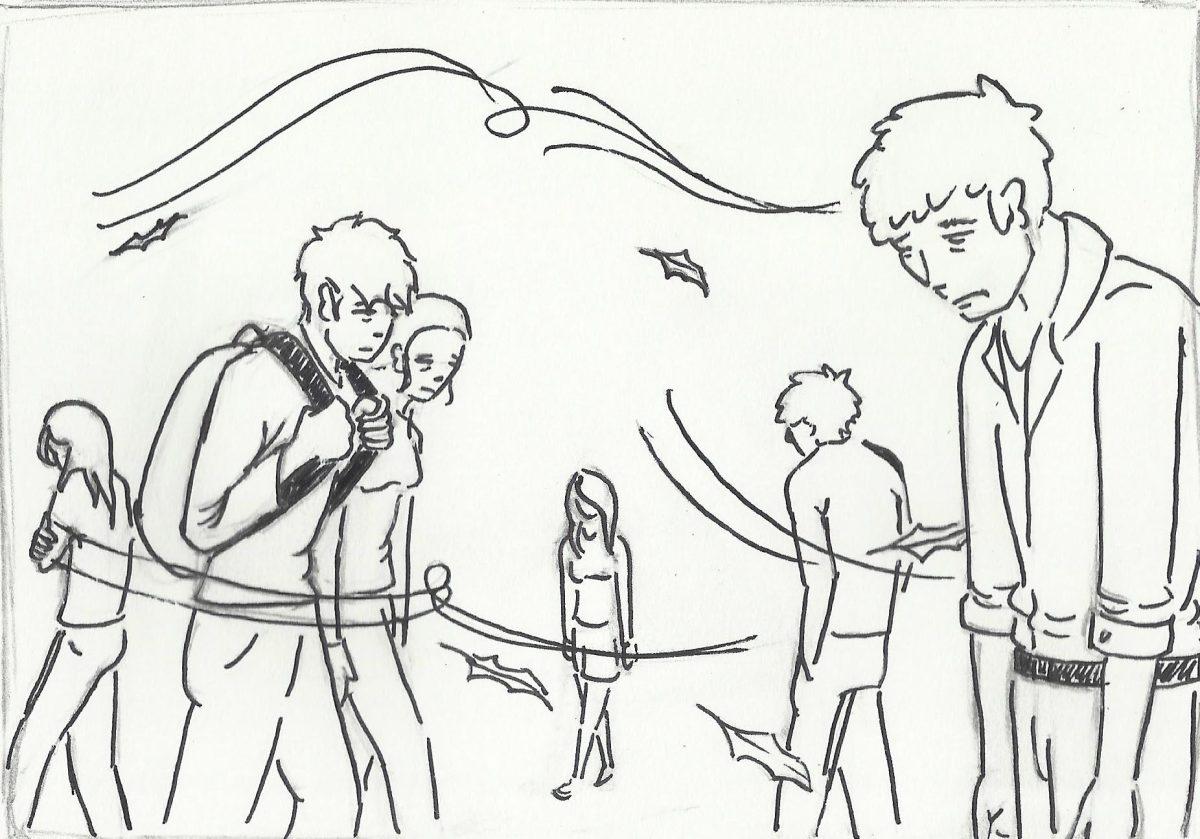There’s a chill in the air recently. Sorority girls have begun pairing their oversized shirts with leggings instead of running shorts and the rest of us have pulled out normal pants and stockings.
Our moods have evolved with the weather.
Students seem to be in a funk, maybe brought on by less-than-stellar play by our Tigers, impending winter graduations or ever-rising tuition.
A recent Gallup poll extends this trend in pessimism to all Americans, and it’s not just the fault of lowering temperatures.
The poll revealed an entire third of Americans are pessimistic about their futures — an all-time high since 1976.
I think it’s safe to say at least an equivalent third of students don’t see much ahead of them right now. Maybe GPAs have fallen, they’ve begun paying attention to the actions of our Board of Regents or someone at home is sick, but no matter the cause, some of us don’t feel like getting out of bed in the morning.
If there’s nothing better waiting in our futures, why care? The sun will continue to set earlier and earlier, grades will bombard us until the end of our college careers and we’ll just keep on aging.
As with all data, though, we are the ones with the power to change the numbers.
The nationwide statistics shift from year to year. Whether it’s half a percentage point better or worse, factor in potential muck-ups and you’ve got a murky look at a population’s makeup.
We dictate that view, and we’re not bound to it.
Gallup began asking Americans about their relative hopefulness in 1964, when three quarters of U.S. citizens felt satisfied with their potential, and the all-time high came in 1990 when a full 80 percent rated themselves excited about their futures.
This seems like as good a reason as any to bask in the ’90s-kid trope.
Lisa Frank and Tamagotchi aside, if you’re sad now, maybe something will change soon. Hope will come in the form of your roommate taking out the trash without being prompted or a good conversation with a professor.
The small things will begin to add up, and the larger ones will become a part of the way you see your life. Maybe the desire for a higher GPA will prompt a deeper understanding of the most struggled-with subject.
We haven’t lost all control of our situations, as much as it may seem.
Symbolism means we assign our own meanings to different parts of life, and going into a situation you’ve chosen to define as negative — while it doesn’t determine the entire outcome — doesn’t help.
If numbers say more Americans are likely to not look forward to their futures that doesn’t mean you have only a 66 percent chance of being happy. It means there is a trend toward the negative.
You don’t have to be a part of that trend. We are all individuals with free will, not governed by predetermined ratios and quotas.
Even though the prevailing mood around campus is one of defeat, you don’t have to fall to the sadness.
Make a choice to focus on the more positive aspects of life. That won’t solve every problem, but it could brighten up some corners of life.
Opinion: Battle negative worldviews and break monotony
By Megan Dunbar
November 12, 2013
Depression








